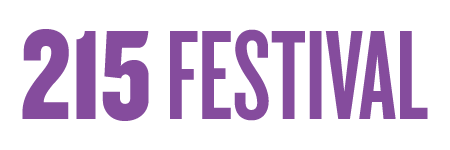Land Acknowledgement
We acknowledge that the land upon which we gather is part of the traditional territory of the Lenni-Lenape, called “Lenapehoking.” The Lenape People lived in harmony with one another upon this territory for thousands of years.
During the colonial era and early federal period, many were removed west and north, but some also remain among the continuing historical tribal communities of the region: The Nanticoke Lenni-Lenape Tribal Nation; the Ramapough Lenape Nation; and the Powhatan Renape Nation, The Nanticoke of Millsboro Delaware, and the Lenape of Cheswold Delaware.
We acknowledge the Lenni-Lenape as the original people of this land and their continuing relationship with their territory. In our acknowledgment of the continued presence of Lenape people in their homeland, we affirm the aspiration of the great Lenape Chief Tamanend, that there be harmony between the indigenous people of this land and the descendants of the immigrants to this land, “as long as the rivers and creeks flow, and the sun, moon, and stars shine.”
We also acknowledge that we cannot separate the history of our city or our community from the history of colonialism and slavery in the United States. Enslaved peoples were first brought against their will to this land in the mid-17th century and their exploitation is central to the foundation of the city of Philadelphia.
In our acknowledgement, we pay respect to the enslaved peoples who built the city in which we gather and to their descendants, who live amongst us and contribute to our community today.
We acknowledge the legacy of colonialism and slavery persists today as we continuously work towards racial justice, equity, and liberation here in Philadelphia.
With special thanks to the Nanticoke Lenni-Lenape Tribal Nation and Rush Osorio
Diversity Policy
The 215 Festival pledges to uplift and celebrate the stories and perspectives of Black, Indigenous, People of Color (BIPOC). We believe the perspectives of BIPOC are integral to all aspects of the literary arts and will work to affirm BIPOC writers by committing to the following goals:
We will build an advisory board comprised of a majority of BIPOC to ensure our festival is guided by voices that accurately represents the demographics of Philadelphia's citizenry.
We will focus a portion of our marketing budget to specifically increase festival outreach to BIPOC communities. We will also provide book vouchers and travel vouchers to attendees from communities in the greater Philadelphia area that have been historically and systemically disadvantaged due to white supremacy.
We will prioritize the creation of safe spaces during the festival so that BIPOC attendees can discuss their experiences free from harassment.
We will seek and place BIPOC writers in all 215 Festival panels and will not relegate BIPOC writers exclusively to race-specific panels.
We will provide travel and lodging assistance to BIPOC writers, who are often underpaid for their writing and underfunded for the promotion of their work due to racism in the publishing industry.
We will build a diverse festival line-up that includes a majority of BIPOC writers, Queer writers, Trans* and Non-binary writers, disabled writers, undocumented writers, and working class writers.
We will remain transparent about our progress toward these goals and encourage our advisory board, panelists, and audience to continuously challenge us to do better.
Last Updated: June 2020
Code of Conduct
The 215 Festival is an open safe space for all those who are in attendance and all those who are presenting work, selling products, or otherwise involved with the festival's activities. To that end, 215 Festival has created the following code of conduct to ensure the safety and comfort of all those attending and/or participating in the events. This code of conduct is applicable to both the festival itself and any and all events, contacts, or communications leading up to the event as well as after the festival has ended.
We define harassment as the following:
Acts of physical violence or unwanted physical contact
Verbal accosting and/or unwelcome remarks
Verbal or physical intimidation including but not limited to stalking, staring, and sexual advancements
Obscene or offensive, nonverbal gestures
Display or dissemination of materials encouraging hate towards another group
Acts of discrimination against anyone based on the below criteria
We do not tolerate any of the above acts of harassment towards any attendees, presenters, vendors, or festival staff on the basis of: race, ethnicity, sexual orientation, gender identity or gender presentation, religion, age, physical abilities, socioeconomic status, or any other aspect of their personal identity.
The 215 Festival recognizes their attendees, presenters, vendors, and staff have the right to the following:
To have equal access to the arts
Expression in all forms
To be treated with respect
To offer or deny consent in physical contact
To determine their own personal safety
While we recognize the conversations and presentations that take place at the festival may entail questions around or verbalizations of the above prohibited behavior, we and those involved in any altercation reserve the right to make judgement on the nature of any offending party’s behavior and act accordingly.
Last Updated: June 2020



